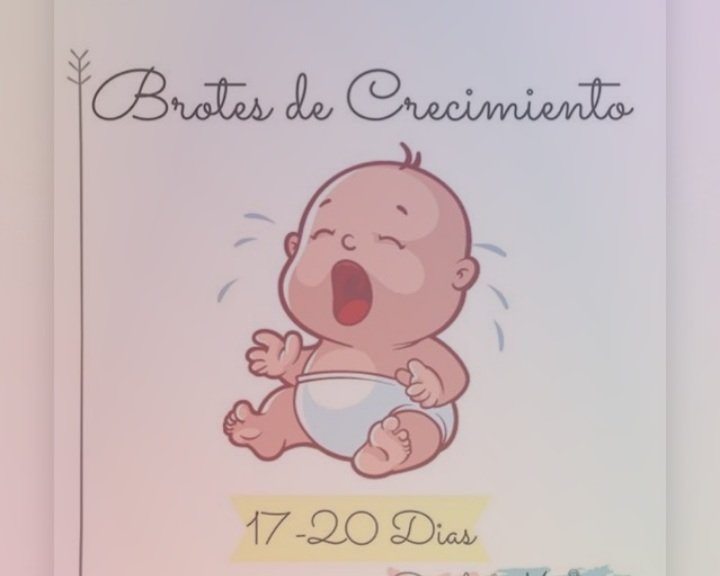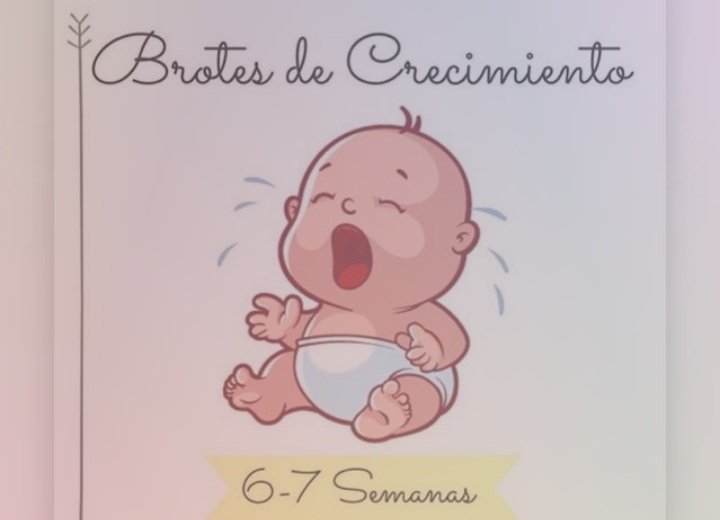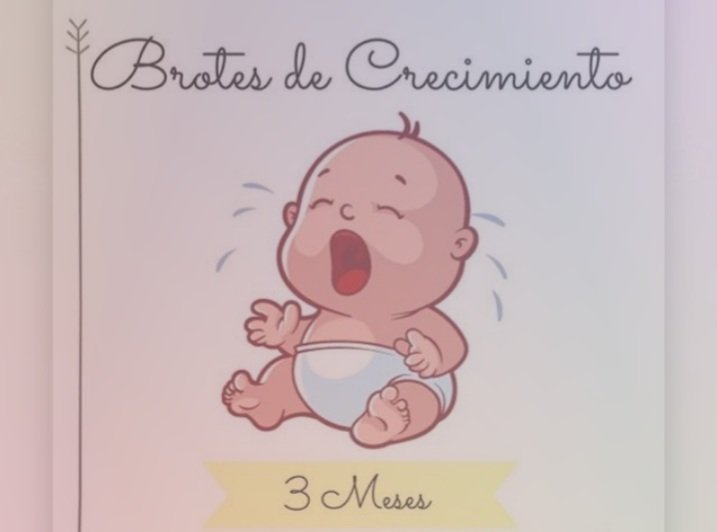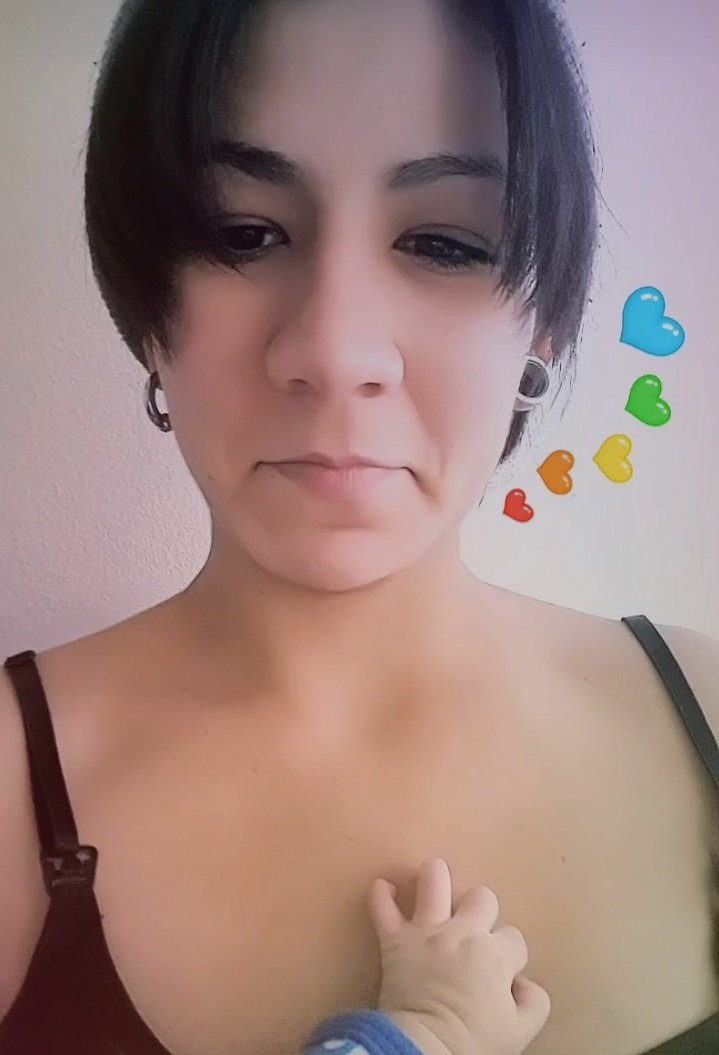Un gran saludo a toda la comunidad, espero que estén muy bien, hoy quiero compartir con ustedes la experiencia que tuve con la lactancia y mis primeros días post parto.
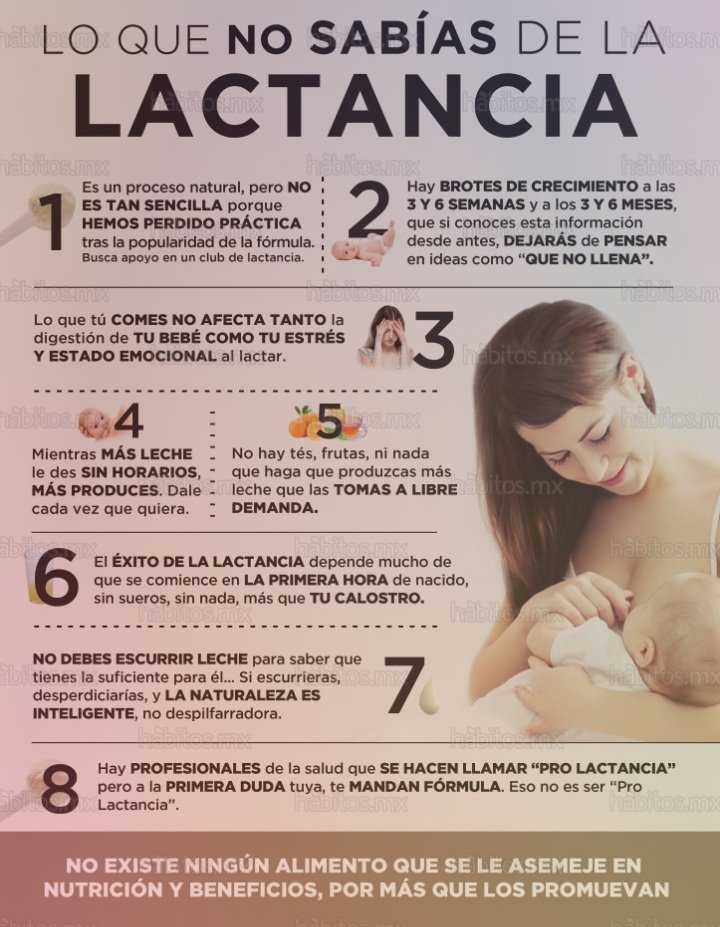
En el embarazo estuve nutriéndome de conocimientos, como madre primeriza quería estar muy informada. Para dicho momento mi mejor amiga ya era madre, la considero mi asesora, sabía que ella tenia la experiencia en el tema, lamentablemente vivimos en países distintos, pero siempre estuvimos en comunicación.
A big greeting to the whole community, I hope you are very well, today I want to share with you the experience I had with breastfeeding and my first days postpartum.
During pregnancy I was nourishing myself with knowledge, as a new mother I wanted to be very informed. At that time my best friend was already a mother, I consider her my advisor, I knew she had experience in the subject, unfortunately we live in different countries, but we were always in communication.
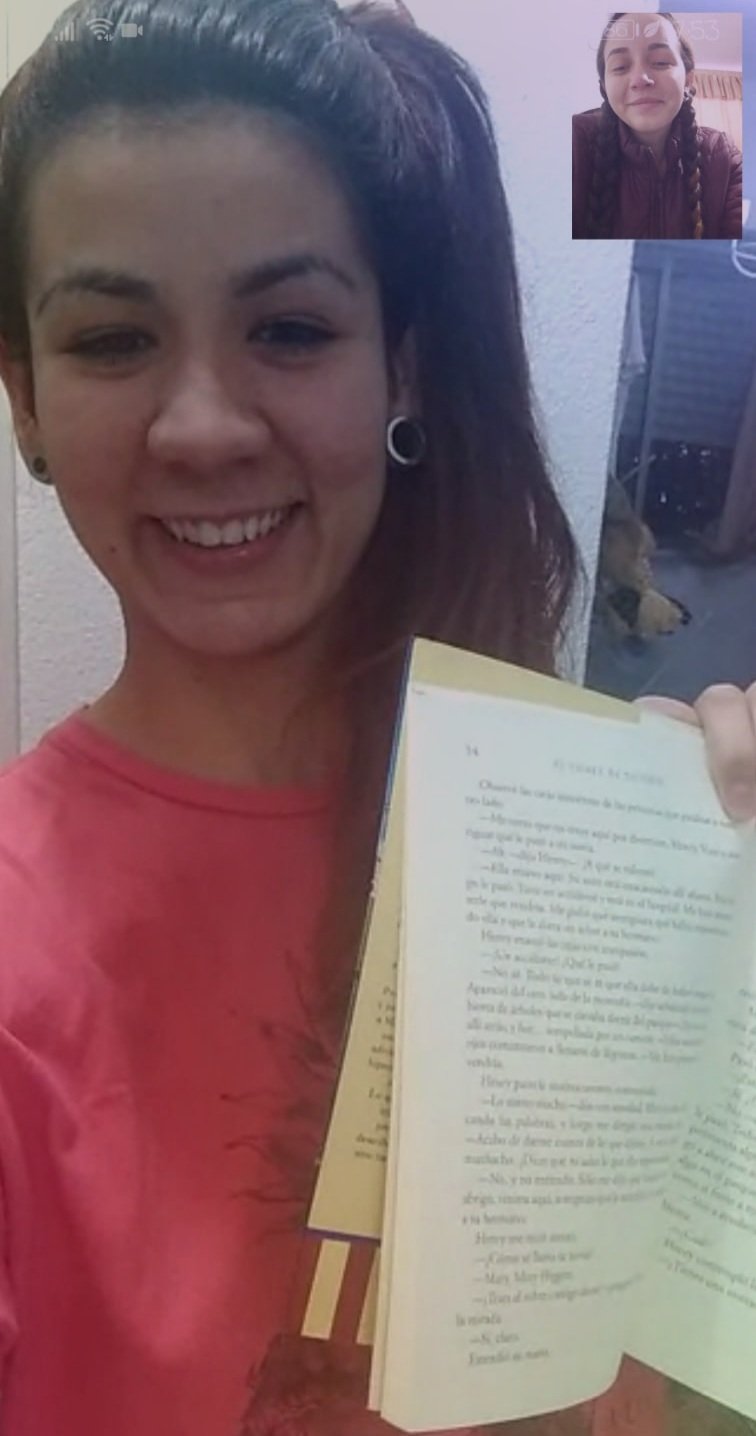
Photo by me
Fueron meses de estudio, luego de saber y comprender lo importante y valioso que sería para mi bebé la alimentación con lactancia materna exclusiva, me oponía rotundamente al escuchar ésta frase: " lleva fórmula y biberón al hospital".
Sin embargo jamás imaginé lo fuerte, doloroso, y complicado que sería todo, ya que no pude tener un parto natural, me vi en la obligación de tener a mi hijo a través de una cesárea.
They were months of study, after knowing and understanding how important and valuable exclusive breastfeeding would be for my baby, I was strongly opposed to hearing this phrase: "take formula and a bottle to the hospital".
However,I never imagined how strong, painful and complicated everything would be, since I could not have a natural childbirth, I was forced to have my child through a cesarean section.
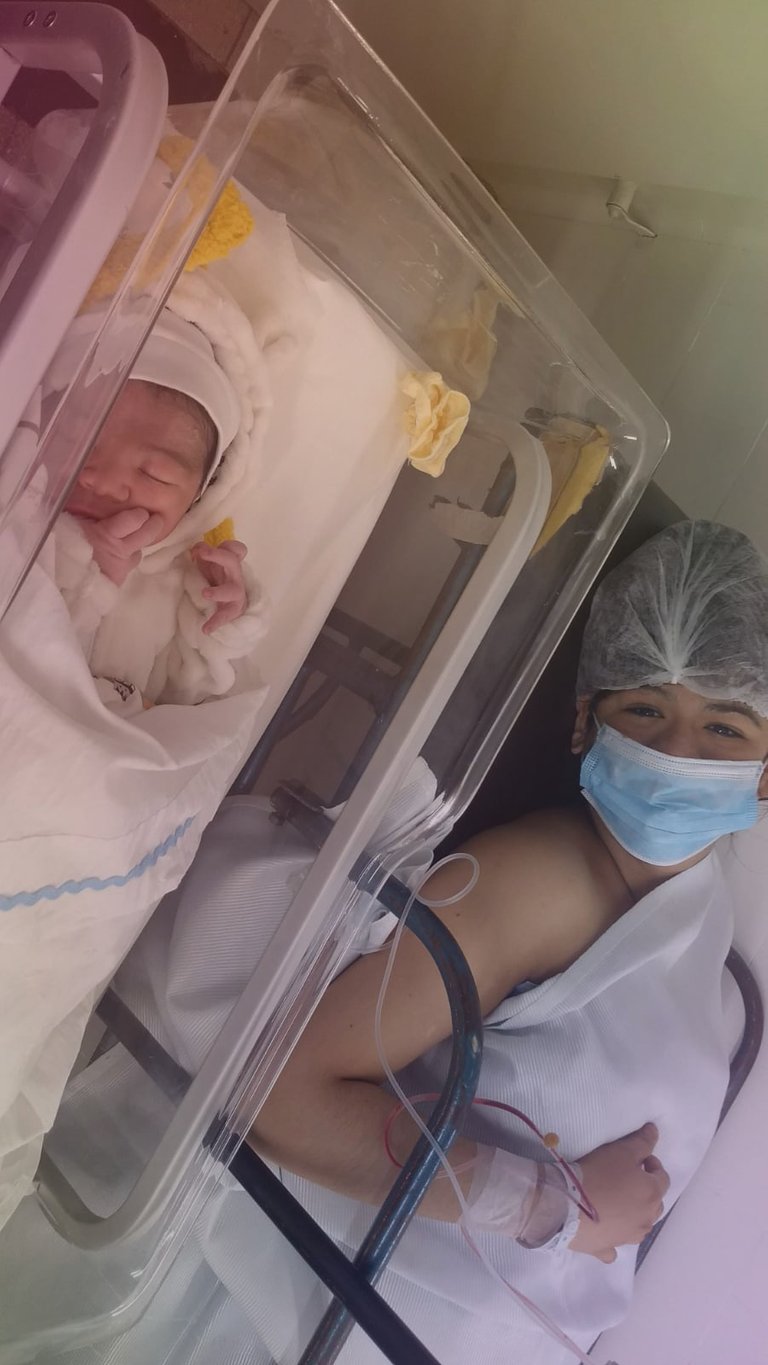
Photo by me, Rivadavia Hospital.
Es por ello que alimentar a Liam durante los primeros días post parto para mi fué tan complicado,tenía que tener mucho cuidado con mi herida, cuidar de él y lograr lo que tanto quería por su bien,me costaba mucho adaptarme a ciertas posiciones para amamantar, y me frustaba el hecho de no sentir comodidad.
That's why feeding Liam during the first days postpartum was so complicated for me, I had to be very careful with my wound, take care of him and achieve what I wanted so much for his sake, I had a hard time adapting to certain breastfeeding positions, and I was frustrated by the fact that I didn't feel comfortable.
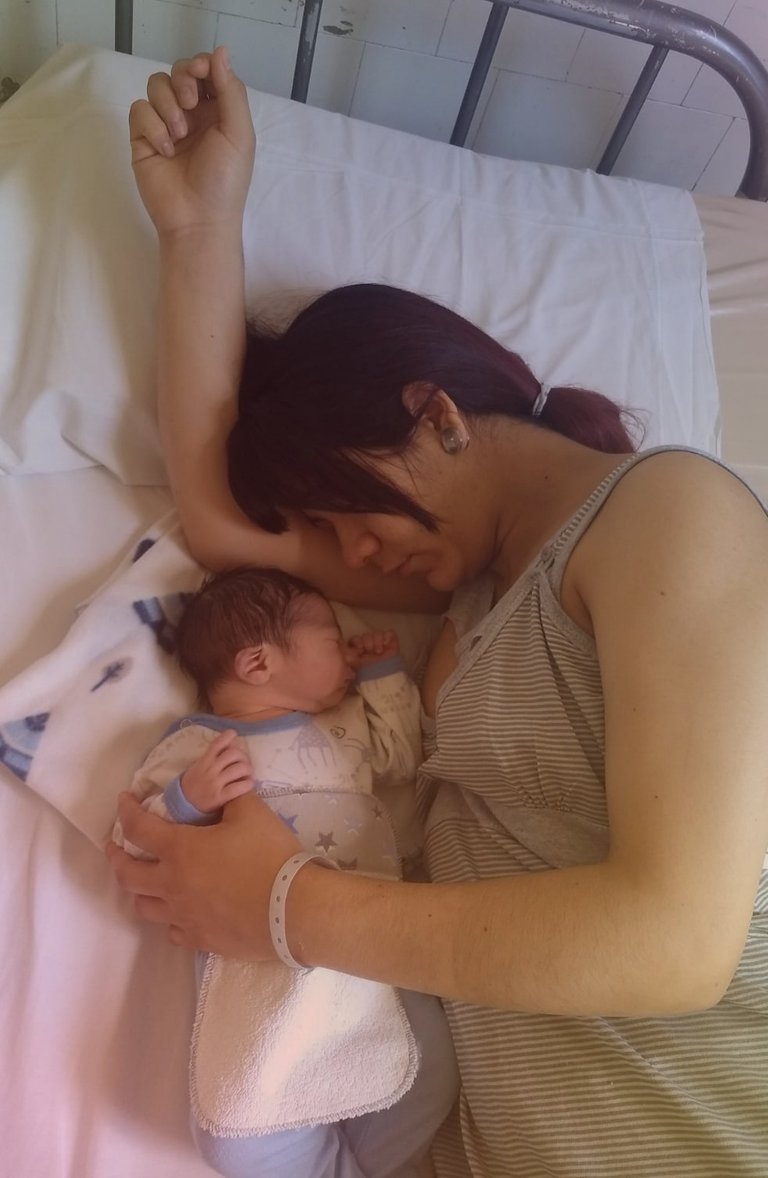
Photo by me
Fueron días y noches sin dormir, todo se resumía en amamantar al pequeño sin mirar el reloj, ya que lo hemos hecho a libre demanda.
It was days and nights without sleep, to be exact a month, everything was summed up in breastfeeding the baby without looking at the clock.
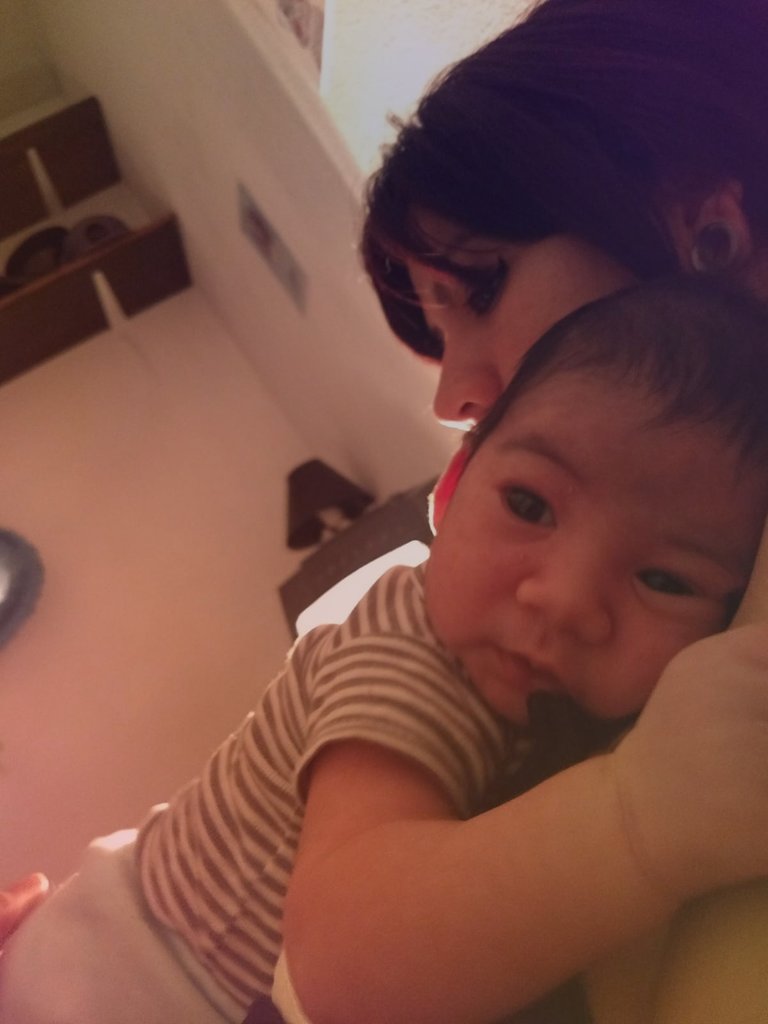
Photo by me
Estuve en una lucha constante entre seguir con lactancia materna exclusiva o abandonar a los pocos días del nacimiento,gracias a la cesárea tuve fuertes cambios de humor en el post parto y no sentía tanta conexión al amamantar a mi hijo. A parte de lo adolorida que estaba por la operación sentía ya un poco de fracaso,pero el amor todo lo puede.
I was in a constant struggle between continuing with exclusive breastfeeding or giving up a few days after the birth, thanks to the cesarean section I had strong mood swings in the postpartum and did not feel so much connection to breastfeed my son. In addition to the pain I was in from the surgery, I was already feeling a bit of a failure, but love conquers all.
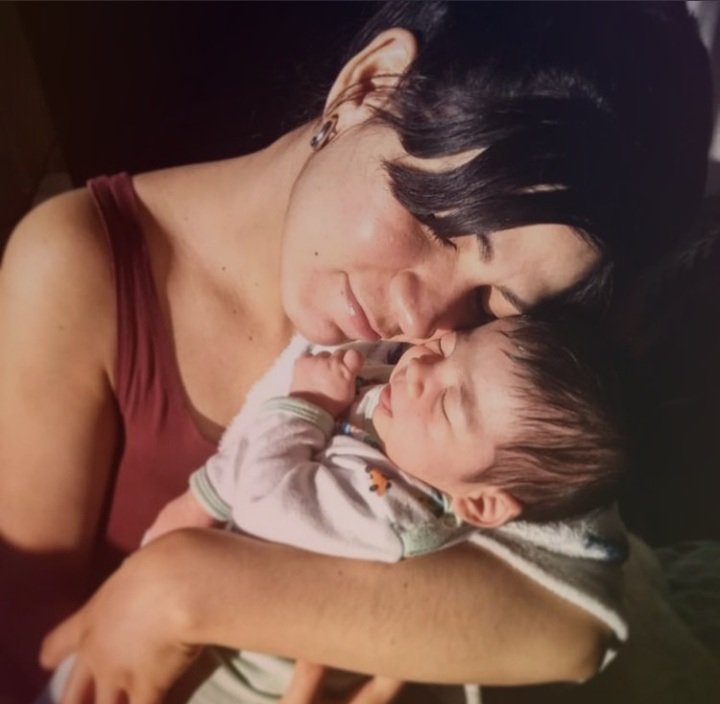
Photo by me
Sabia que en algún momento lo malo iba a desaparecer, sabía que mi hijo necesitaba mis pechos para alimentarse y para sentirse seguro y protegido, luego de quince días post parto estuve mucho mejor, caminaba despacio , mi herida ya no dolía tanto , la idea de abandonar la lactancia tan pronto había desaparecido...
Todo marchaba bien, pero entre tanta información que tenía, sabía que estaba por acercarse el primer brote de crecimiento, o la mal llamada crisis de lactancia,es muy importante conocer acerca de éste tema para saber manejar ciertas situaciones.
I knew that at some point the bad things would disappear, I knew that my son needed my breasts to feed and to feel safe and protected, after fifteen days postpartum I was much better, I walked slowly, my wound no longer hurt so much, the idea of abandoning breastfeeding so soon had disappeared....
Everything was going well, but among all the information I had, I knew that the first growth spurt was approaching, or the wrongly called lactation crisis, it is very important to know about this topic in order to know how to handle certain situations.
Los brotes de crecimiento de los bebés o también llamadas "crisis de lactancia" son fuente de consulta recurrente a los pediatras. Aunque se denomina "crisis" y suelen revestir ese carácter para las mamás y papás, para los bebés son pasos naturales de su desarrollo que buscan una adaptación permanente a la producción de leche materna. Una mayor ingesta les permitirá avanzar en su desarrollo psíquico, físico y emocional.
Infant growth spurts, also known as "breastfeeding crises", are a recurrent source of consultation with pediatricians. Although they are called "crises" and usually have that character for moms and dads, for babies they are natural steps in their development that seek a permanent adaptation to the production of breast milk. Increased intake will allow them to advance in their psychological, physical and emotional development.
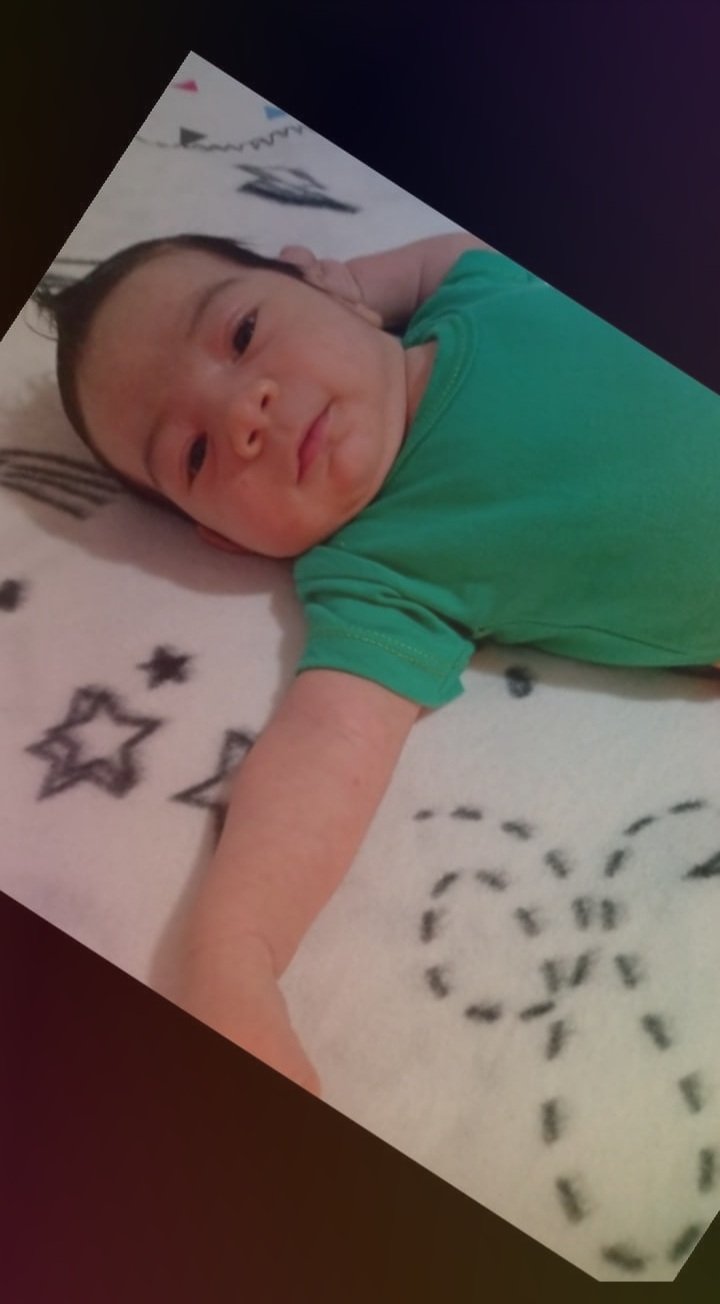
Photo by me
El riesgo de no respetar y comprender este momento delicado que puede durar tan solo unos días es un destete precoz. "Mi leche no alcanza", "se enoja porque no puede tomar" pueden ser pensamientos recurrentes y muchas veces la solución es destetar. Por suerte ya yo sabía lo que estaba sucediendo.
The risk of not respecting and understanding this delicate moment that can last only a few days is early weaning. "My milk is not enough", "he gets angry because he can't drink" can be recurring thoughts and many times the solution is to wean. Luckily I already knew what was going on.
Lo mismo cuando sube la demanda: a veces suele generar cierta frustración al pensar que "va a durar para siempre", pero asumir que es un proceso normal y hasta positivo (porque es un signo de desarrollo) puede ayudar para que busquemos maneras de contener nuestro bebé y acompañar la situación.
The same thing happens when the demand increases: sometimes it can generate some frustration to think that "it will last forever", but assuming that this is a normal and even positive process (because it is a sign of development) can help us to find ways to contain our baby and accompany the situation.
Las crisis de lactancia se manifiestan clínicamente como períodos de alta demanda. Están irritables, fastidiosos, duermen menos, lloran más. Parecería que no están satisfechos con el pecho. También se da el caso de que 'pelean' con la teta, la golpean y se enojan porque no pueden tomar como quisieran. Pueden hasta rechazarlas por unas horas.

Esto lleva a pensar a las personas que no tiene leche, o que su leche no alcanza. A veces, por el contrario, el bebé quiere tomar teta todo el tiempo y de manera ansiosa.
Lactation crises are clinically manifested as periods of high demand. They are irritable, fussy, sleep less, cry more. It seems that they are not satisfied with the breast. It is also the case that they 'fight' with the teat, hit it and get angry because they cannot drink as they would like to. They may even refuse them for a few hours.
This leads people to think that they have no milk, or that their milk is not enough. Sometimes, on the contrary, the baby wants to take the teat all the time and in an anxious way.Les comparto 3 brotes comunes:Hay tres momentos en la vida de un bebé que suelen presentarse brotes de crecimiento bien caracterizados:I share with you 3 common growth spurts:There are three times in a baby's life that well-characterized growth spurts usually occur:17 a 20 días de edad: durante la tercera semana de vida los bebés empiezan a demandar más tiempo en el pecho, o más tomas al día. Esto, que es para aumentar la producción de leche (demanda-oferta), hace creer a la madre que su leche no es suficiente para satisfacer las necesidades de su bebé, con el riesgo de destetar si se introducen sucedáneos de leche materna.17 to 20 days of age: during the third week of life, babies begin to demand more time at the breast, or more feedings per day. This, which is to increase milk production (demand-supply), makes the mother believe that her milk is not enough to meet her baby's needs, with the risk of weaning if breast milk substitutes are introduced.Este brote dura entre 2 a 3 días, y suele ser muy cansador para nosotras las madres. Debemos quedarnos tranquilas si el bebé tiene deposiciones normales y ha recuperado sin problemas el peso de nacimiento entre los 10 y 15 días: esto quiere decir que todo va bien.This flare-up lasts 2 to 3 days and is usually very tiring for us mothers. We should be reassured if the baby has normal bowel movements and has regained birth weight without problems between 10 and 15 days: this means that everything is going well.
6 a 7 semanas de edad: ya al mes y medio llevamos un buen tiempo amamantando y cuando creemos que llegó la calma, nuestro bebé puede empezar a rechazar el pecho: se aleja, no quiere tomar. Esto sucede ya que hay un cambio repentino y transitorio del sabor de la leche a uno más salado, lo que a algunos bebés no les agrada. Este brote dura aproximadamente 1 semana.6 to 7 weeks of age: at a month and a half we have been breastfeeding for a long time and when we think the calm has arrived, our baby may start to reject the breast: he/she moves away, does not want to drink. This happens because there is a sudden and transitory change in the taste of milk to a saltier one, which some babies do not like. This outbreak lasts about 1 week.
3 meses de edad: este es el brote más reconocido por las madres, y el más largo (aproximadamente 1 mes de duración). Los bebés a los 3 meses se tornan eficientes para extraer la leche por lo que están menos tiempo al pecho de las madres, lo que genera en ellas una errada sensación de que 'tienen poca leche'. Esto se suma a que sienten los pechos flácidos, aumentando su preocupación. Además, los bebés se empiezan a distraer con facilidad por lo que toman leche y rápidamente se sueltan.3 months of age: this is the outbreak most recognized by mothers, and the longest (approximately 1 month in duration). Babies at 3 months of age become efficient at expressing milk, so they spend less time at the mother's breast, which generates in them a mistaken sensation that 'they have little milk'. This is added to the fact that their breasts feel flaccid, increasing their concern. In addition, babies become easily distracted so they drink milk and quickly let go.Junto a esta maduración en el bebé que lo hace ser un 'experto en succionar', está el hecho de que el pecho deja de almacenar la leche y empieza a producirla en el momento de la succión (por eso los pechos ya no se sienten llenos).Todo esto provoca que éste brote sea, en muchas ocasiones, causa del destete. Esta sensación de que no quiere tomar pecho, hace que se instalen los sucedáneos de leche materna y, con ellos, se vaya abandonando la lactancia.Together with this maturation in the baby that makes him an 'expert in sucking', there is the fact that the breast stops storing milk and starts producing it at the moment of sucking (that is why the breasts no longer feel full).All this causes this outbreak to be, on many occasions, the cause of weaning. This sensation of not wanting to breastfeed, makes the.Ya son 11 meses de lactancia materna exclusiva, mi bebé atravesó por todos los brotes de crecimiento y yo sólo decía: ésto va a pasar, la lactancia materna es la mejor vacuna para tu hijo ❤!!!it's already 11 months of exclusive breastfeeding, my baby went through all the growth spurts and I just kept saying: this is going to pass, breastfeeding is the best vaccine for your child ❤!!!!
Photo by meAunque no a sido fácil puedo decir que a sido una experiencia maravillosa.Espero que les haya gustado, para mi es un gusto estar aquí con ustedes y formar parte de ésta hermosa comunidad. Hasta la próxima 😉And although it has not been easy, I can say that it has been a wonderful experience.I hope you liked it, for me it's a pleasure to be here with you and be part of this beautiful community. Until next time 😉
